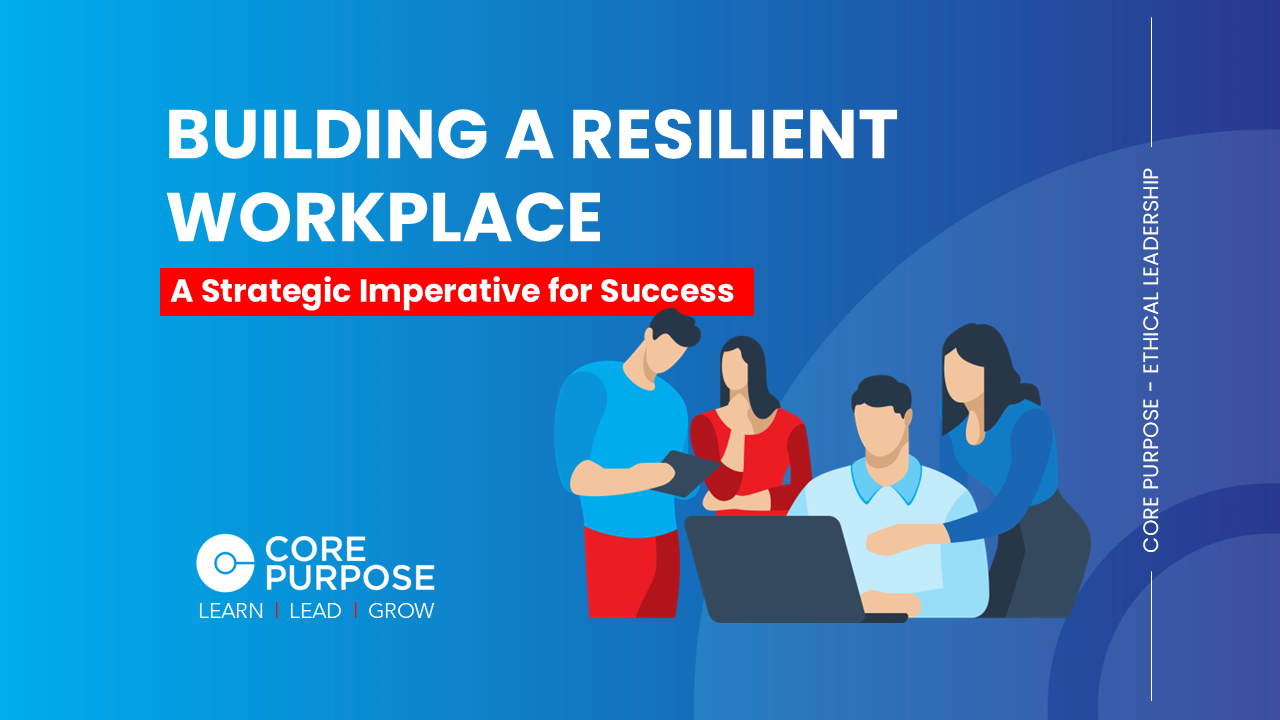
A Healthy Workplace Benefits Everyone
Creating a resilient workplace is not just an ethical responsibility—it’s a strategic advantage. Research consistently shows that investing in employee wellbeing leads to increased productivity, engagement, and job satisfaction while reducing absenteeism, burnout, and turnover. A strong focus on resilience also ensures organisations meet their legal obligations to protect employees' mental and physical health, just as they do with other workplace health and safety risks.
The Benefits of a Resilient Workforce
A resilient workforce is more than just a team that can handle stress; it is a workforce that thrives in the face of challenges. Employees who are supported in their wellbeing:
- Demonstrate greater engagement and motivation
- Contribute to a more positive and collaborative workplace culture
- Experience lower rates of absenteeism and turnover
- Adapt more effectively to change and uncertainty
- Enhance the overall productivity and performance of the business
How to Build a Resilient Workplace
Resilience is not something people are simply born with—it can be cultivated through workplace practices that empower employees with the skills, resources, and support needed to navigate stress and change effectively. A resilient workplace is built on a foundation of continuous development, proactive leadership, and a commitment to wellbeing.
Key Strategies for Strengthening Workplace Resilience
✔ Lead by Example – Leaders set the tone for workplace culture. Prioritise your own wellbeing and encourage open, honest conversations about mental health and stress management.
✔ Promote Psychological Safety – Foster an environment where employees feel safe discussing challenges, seeking help, and supporting one another. Normalising mental health conversations helps break down stigma and encourages proactive care.
✔ Design Work for Balance – Ensure workloads are manageable, involve employees in decisions about how and when they work, and implement flexible policies that promote work-life balance.
✔ Provide Targeted Training – Equip employees and leaders with resilience-building skills through training programmes focused on mental health awareness, stress management, recovery, and self-care.
✔ Offer Organisational Support – Implement Employee Assistance Programmes (EAPs) that provide access to professional support and counselling services.
✔ Encourage Healthy Habits – Introduce workplace wellness initiatives such as mindfulness sessions, movement breaks, step challenges, or lunchtime yoga to promote physical and mental wellbeing.
Game Changers: The Steps That Make a Lasting Impact
1. Align Organisational Culture with Employee Wellbeing
A strong workplace culture is the backbone of resilience. When employees feel valued, engaged, and aligned with the organisation’s mission, they are more likely to stay committed and perform at their best. Cultivating a culture of trust, transparency, and psychological safety enables teams to navigate business challenges with agility and confidence.
Explore our Core Ideology one-day programme to refine and strengthen your workplace culture.
2. Develop Resilient and Emotionally Intelligent Leaders
Leadership resilience is the foundation for a thriving workforce. Leaders who are equipped with emotional intelligence and mindfulness skills can inspire, support, and guide their teams effectively, even in times of uncertainty. Investing in leadership training enhances engagement, communication, and adaptability across all levels of the organisation.
Discover our specialised leadership training programs designed to strengthen resilience, emotional intelligence, and key leadership competencies.
Let’s Build a Resilient Workplace Together
At Core Purpose Limited, we help organisations create resilient, high-performing teams through strategic leadership development and workplace wellbeing initiatives.
Email Camelia: camelia.petrus@corepurpose.co.nz
Camelia Petrus, PGDip I/O Psychology
Managing Director
Core Purpose Limited, Auckland, New Zealand
We guide individuals and organisations to draw on the humanities, on the social sciences, and on the moral fabric of their leaders and employees to build moral capacity and thus reduce vulnerability.
Stay in the loop!
Join our mailing list to receive the latest news and updates from our team.
We hate SPAM too. You can unsubscribe from our list for any reason.

